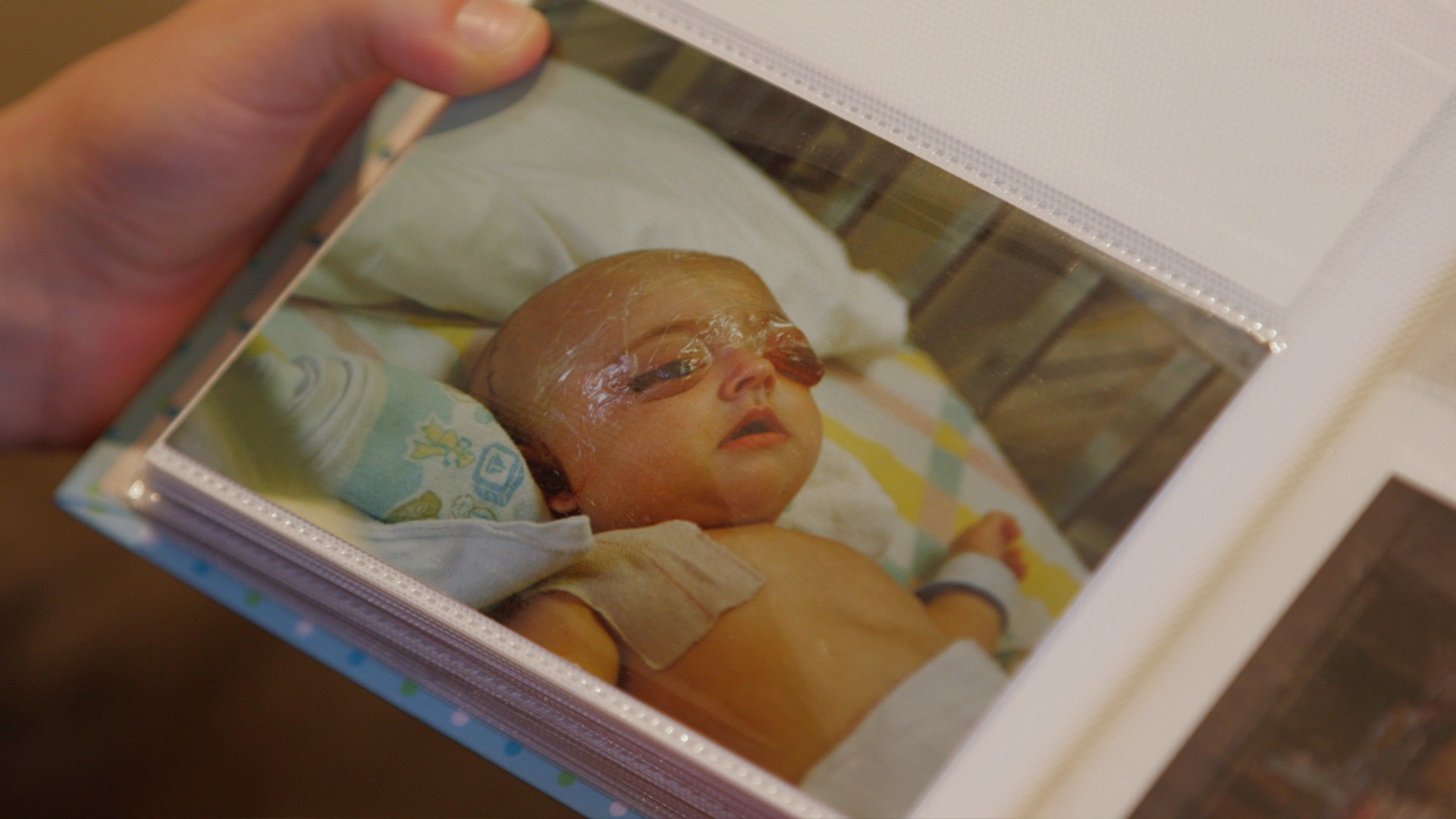Portland Press Herald / Getty Images
On February 9, more than 500 churches around the world participated in the“Night to Shine"—an annual event series for people with intellectual and physical disabilities hosted by the Tim Tebow Foundation. The events are held in different cities on the same night, and according to the website, give its 90,000 teen attendees “an unforgettable prom night experience, centered on God’s love." In a statement to People , Tebow called it his “favorite night of the year,” emphasizing his passion for celebrating a community that so often goes overlooked.“This is one night where they’re all crowned as prom kings and queens. It’s something I’m very passionate about. And we’re finding that communities are starting to treat these people different all year around. It’s about changing the culture and showing that these people have value. They’re important. They’re important to God, and they’re important to me,” he told the magazine.Despite Tebow’s good intentions, many in the disability community argue that disabled-only events like “Night to Shine” aren’t actually changing the culture surrounding disability, but instead furthering the separation between those who are disabled and those who are able-bodied.In a statement released by Link20—a Ruderman Family Foundation initiative that brings disabled and nondisabled activists together—the group objected to the segregated nature of the event. “We encourage you to create a night where teenagers are celebrated and loved regardless of their differences. An inclusive prom where teenagers with disabilities are dancing alongside those without disabilities is the kind of event that can change individual lives and make an impact on our society as a whole,” the statement read.As such, Night to Shine has triggered polarizing responses. While the 540 churches, 175,000 volunteers, and even Tebow himself worked hard to make events that were positive and celebratory, they ultimately highlighted the differing conceptualizations surrounding what it means to be disabled.
More from Tonic:
According to Eric Samuels, a San Francisco-based psychologist specializing in disability-related topics, these very conceptualizations ultimately impact how those in the disability community are treated. Samuels, who has Tourette’s Syndrome, stresses the complicated nature of disability both from a social and psychological standpoint, as well as from personal experience. There are numerous ways that society teaches those who are able-bodied to conceptualize what it means to be disabled, but when it comes to addressing the exclusion and stigmatization of disability, Samuels suggests it comes down to understanding one particular branch of disability theory: the medical model.“The medical model of disability, which holds a lot of prominence in society, advocates for people to take steps to adapt to their disability or cure it through surgeries or rehabilitation, which gives the message to society that there is something wrong with people with disabilities that they need to fix,” Samuels tells me. This mentality promotes the disabled-as-charity line of thinking, because if a person’s disability is a problem to be solved, they deserve pity.“People who do not have disabilities may believe that people with disabilities are inferior, are dependent upon support, and are less human than they are,” Samuels says. What he describes—and what Night to Shine perpetuates—is “otherness.” What we’re doing when we say that disabled people need their own social event is effectively pushing them further into the margin.Emily Ladau, a New York native with Larsen syndrome (a condition affecting bone growth) who is the editor-in-chief of Rooted in Rights, is familiar with this feeling. “To be treated as an ‘other’ is to be told, whether through words or actions, that you don't belong in the mainstream,” Ladau says.“I am othered constantly—when I can only sit in certain seats at a movie theater, when I have to go in a separate entrance, when I have to make alternative plans because a place is not wheelchair accessible,” she says. “The world separates me out from nondisabled people, both by default and intentionally, both by stigmatizing me and through physical barriers.”According to Ladau, "otherness" in the context of exclusionary events like Night to Shine exposes the rampant ableism that has become so prevalent in our society, it’s often overlooked. The event is exclusion masked as celebration—a "separate but equal" line of thinking. Rather than changing perspectives by working toward a world where disabled people attend mainstream schools and enjoy mainstream proms, the underlying message of events like this one is that those in attendance have nowhere else to belong.And it’s not just about marginalization. According to Alaina Leary, a disabled editor and writer in Boston living with autism and Ehlers-Danlos syndrome, it’s also the underlying message it sends —that people with disabilities should be pitied. “Inclusion and acceptance means that the disability community is a part of everything that non-disabled people are doing, and that the events planned are fully accessible for everyone and there's no need, then, to create a disability-specific event,” Leary says.Leary also expresses concern about the portrayal of individuals with disabilities as heroes of some sort. “I'm also really wary of the media coverage of events like Night to Shine—it's set up in a way where readers and viewers are supposed to feel some combination of inspiration and pity because disabled people are able to participate in something that non-disabled people take for granted, like attending a prom,” she says.“The disabled body is exalted as one of being a moral paragon and an inspiration precisely because of the disability and not the identity formed because of it,” says John Altmann, a scholar in Disability Studies who is living with Cerebral Palsy in New Hampshire. “It's large-scale inspiration porn that able-bodied people consume so they can feel like they're good people.”In some ways, feel-good events like Night to Shine are similar to well-meaning marketing ploys that capitalize on the “otherness” of marginalized identities as a way of seeming socially conscious. Earlier this month, Gerber announced that Lucas Warren, an adorable 18-month-old with Down Syndrome, will be the company’s new spokesbaby. But as David Perry wrote in a piece for Pacific Standard, “If a company is going to slap a cute picture of a child with Down syndrome on a bottle, it's fair to ask them how they plan to use the publicity and resulting profits to build a more inclusive company. If Down syndrome organizations and celebrities are going to tout this advertisement as a significant first step toward more widespread acceptance, it's fair to ask them what second step they envision.”Not only are disabled people often considered “other” and “less than” by the world around them, they’re also treated like it. As Trump works to cut billions of dollars from Medicaid, Medicare, and Social Security, many are living in fear of losing access to healthcare and life-changing resources.Even basic rights granted under the Americans with Disabilities Act (ADA) are now being targeted. On February 15, the House passed the Education and Reform Act (H.R. 620), an amendment to the ADA that seeks to make it harder for people with disabilities to pursue legal action against businesses in violation of accessibility and accommodation laws.The "othering” of disabled people isn’t just social, it’s political. And in an ableist society where the lives of disabled people are threatened every day, celebratory events simply aren’t enough. As Perry put it, “what’s next?”“These events are band-aids over the gaping wound of high unemployment, staggering poverty, high incarceration rates, and large scale inaccessibility that will see itself intensified if H.R. 620 passes,” Altmann says. “These events only serve the furtherance of the status quo, and do absolutely nothing for the political and social causes undertaken by those labeled as disabled.”Sign up for our newsletter to get the best of Tonic delivered to your inbox weekly.
Advertisement
Advertisement
More from Tonic:

According to Eric Samuels, a San Francisco-based psychologist specializing in disability-related topics, these very conceptualizations ultimately impact how those in the disability community are treated. Samuels, who has Tourette’s Syndrome, stresses the complicated nature of disability both from a social and psychological standpoint, as well as from personal experience. There are numerous ways that society teaches those who are able-bodied to conceptualize what it means to be disabled, but when it comes to addressing the exclusion and stigmatization of disability, Samuels suggests it comes down to understanding one particular branch of disability theory: the medical model.“The medical model of disability, which holds a lot of prominence in society, advocates for people to take steps to adapt to their disability or cure it through surgeries or rehabilitation, which gives the message to society that there is something wrong with people with disabilities that they need to fix,” Samuels tells me. This mentality promotes the disabled-as-charity line of thinking, because if a person’s disability is a problem to be solved, they deserve pity.“People who do not have disabilities may believe that people with disabilities are inferior, are dependent upon support, and are less human than they are,” Samuels says. What he describes—and what Night to Shine perpetuates—is “otherness.” What we’re doing when we say that disabled people need their own social event is effectively pushing them further into the margin.
Advertisement
Advertisement
Advertisement
